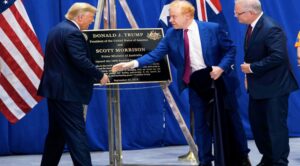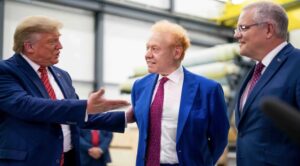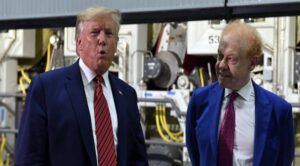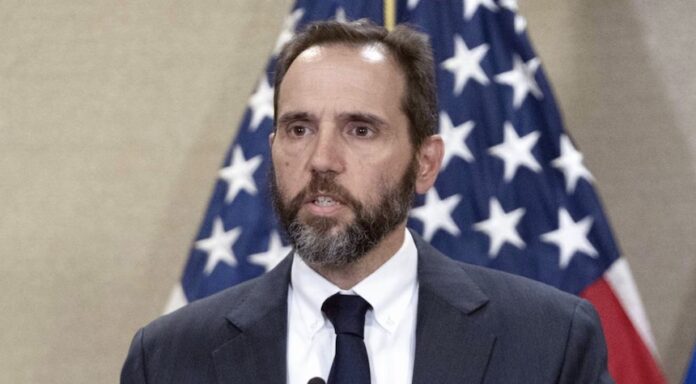After leaving office, Donald Trump is said to have discussed with a billionaire Australian secret details about US nuclear submarine capability.
According to sources that appear to be in Jack Smith’s special counsel office, the conversation began when Anthony Pratt, a paper packaging magnate from Australia, told Trump during a Mara-a-Lago discussion that he believed Australia should purchase nuclear submarines from America.
According to Pratt, according to the sources’ account, Pratt said to Trump that he thought Australia should buy its submarines from the United States. An excited Trump, “leaning in” towards Pratt, as if to appear discreet, then gave Pratt two bits of information regarding U.S. subs: how many nuclear warheads the submarines are supposedly carrying and just how close the submarines can get to Russian submarines without being detected.

ABC News reported that Pratt, in emails and phone conversations following his meeting with Trump described Trump’s comments to at least 45 other people, including six journalists and 11 employees of his company, as well as 10 Australian officials and three former Australian Prime Ministers.
ABC News reported that while Pratt said he could not tell whether Trump’s comments about U.S. subs were true or merely blustering, investigators asked him to refrain from repeating the numbers Trump had allegedly given to him. They suggested the information was too sensitive to be repeated, and ABC News confirmed this.
This story has many problems.
Jack Smith’s office is where the information came from. We can assume that the leak was done by Smith’s office, given how he has conducted his investigation. Pratt acknowledges that there is no proof to support the claim made by Trump. Pratt’s actions indicate that he didn’t believe it was classified because he shared the conversation with many people. He would have kept the information to himself if he had thought it was classified.

Smith ties this case to Trump’s prosecution for storing classified information at Mar-a-Lago. It is difficult to understand what this case has to do unless there is a classified document in the trove. Pratt has apparently been called to testify, but until the government agrees with him that this information is classified and is willing to allow it in court, the story is just anecdotal.
The anecdote fits in nicely, perhaps too well, with the narrative that Democrats have been trying to pin on Trump ever since the Russia Hoax collapsed.
Trump has also been known to verbally share classified information on other occasions. In 2017, shortly after firing the F.B.I., Mr. Trump held a meeting in the Oval Office. According to those briefed about the situation, Donald Trump shared sensitive classified information with two Russian officials during a meeting in 2017 at the Oval Office.
He also posted a classified image of an Iranian launch pad on X (formerly Twitter) well into his presidency.

In the indictment of the documents case, Mr. Trump was also accused of showing a classified attack plan on Iran to visitors at his Bedminster club in New Jersey. The prosecution claims that the recording of Mr. Trump’s meeting with visitors shows him describing the document as “secret.”
Melania Trump’s mansion was allegedly strewn with secrets of the country after the FBI raided Mar-a-Lago in an unprecedented and uncalled-for operation.
Since the raid, we have heard a series of ever-changing excuses that are not backed by any official documentation. They range from claiming that the National Archives and Records Administration should have received presidential papers to increasingly bizarre claims about President Trump having secret nuclear information.
This story serves two purposes. This is a story that will never be heard in court but builds upon the storyline Smith requires to convict Trump. He is basically talking to the jurors to get them to believe in his case. He’s also playing the GOP primaries and general elections by saying that Trump cannot be trusted to handle classified information.




